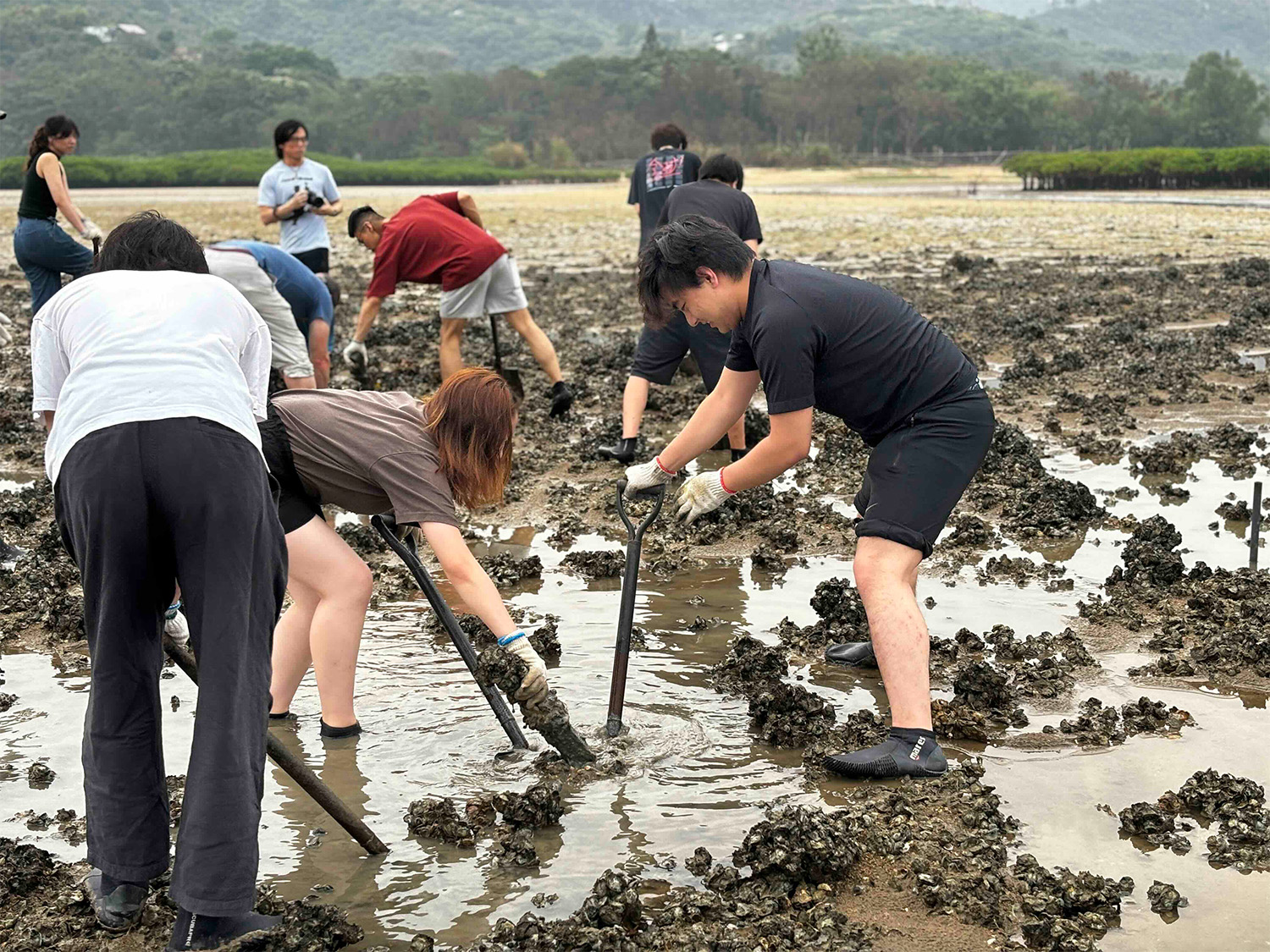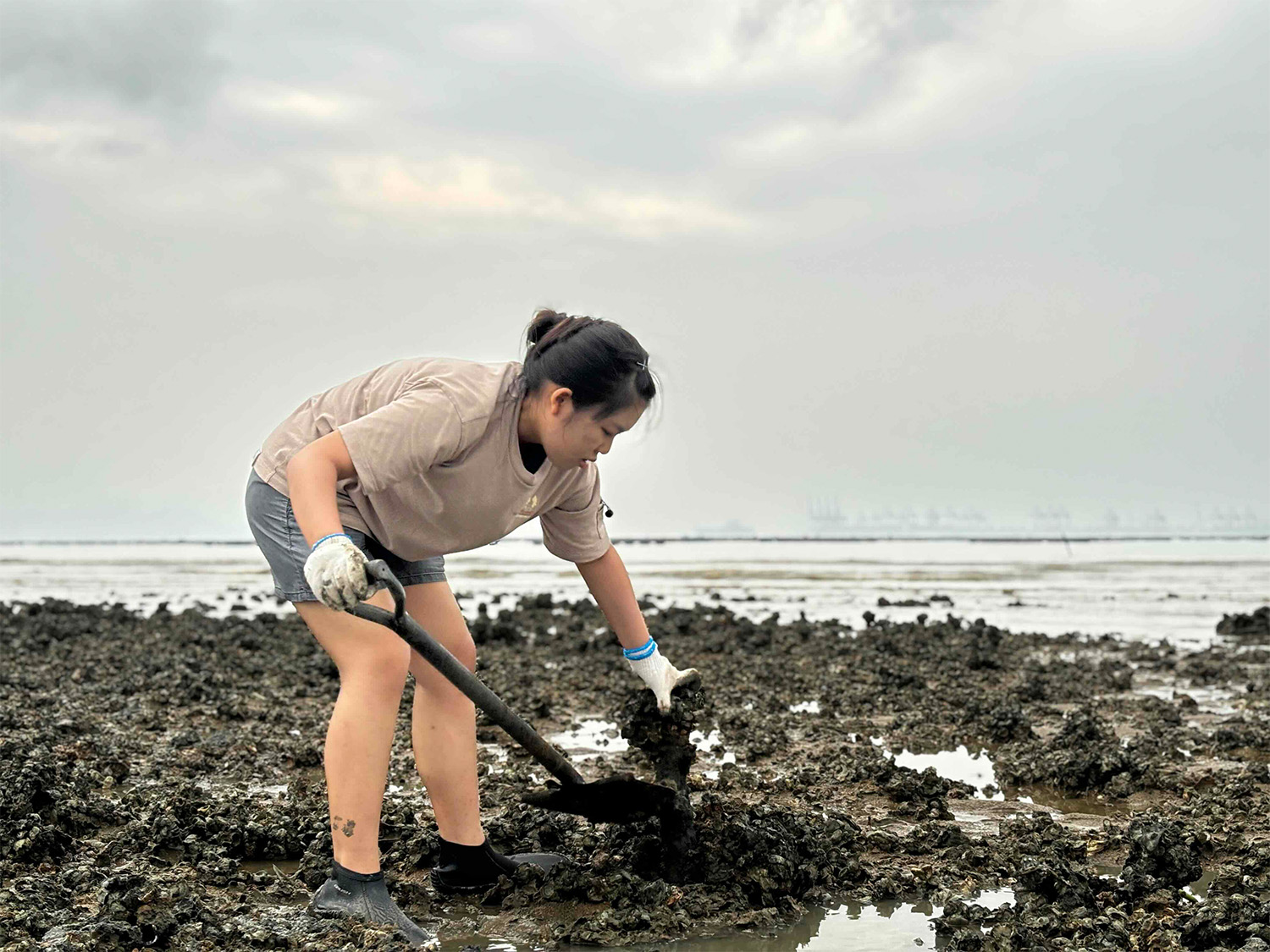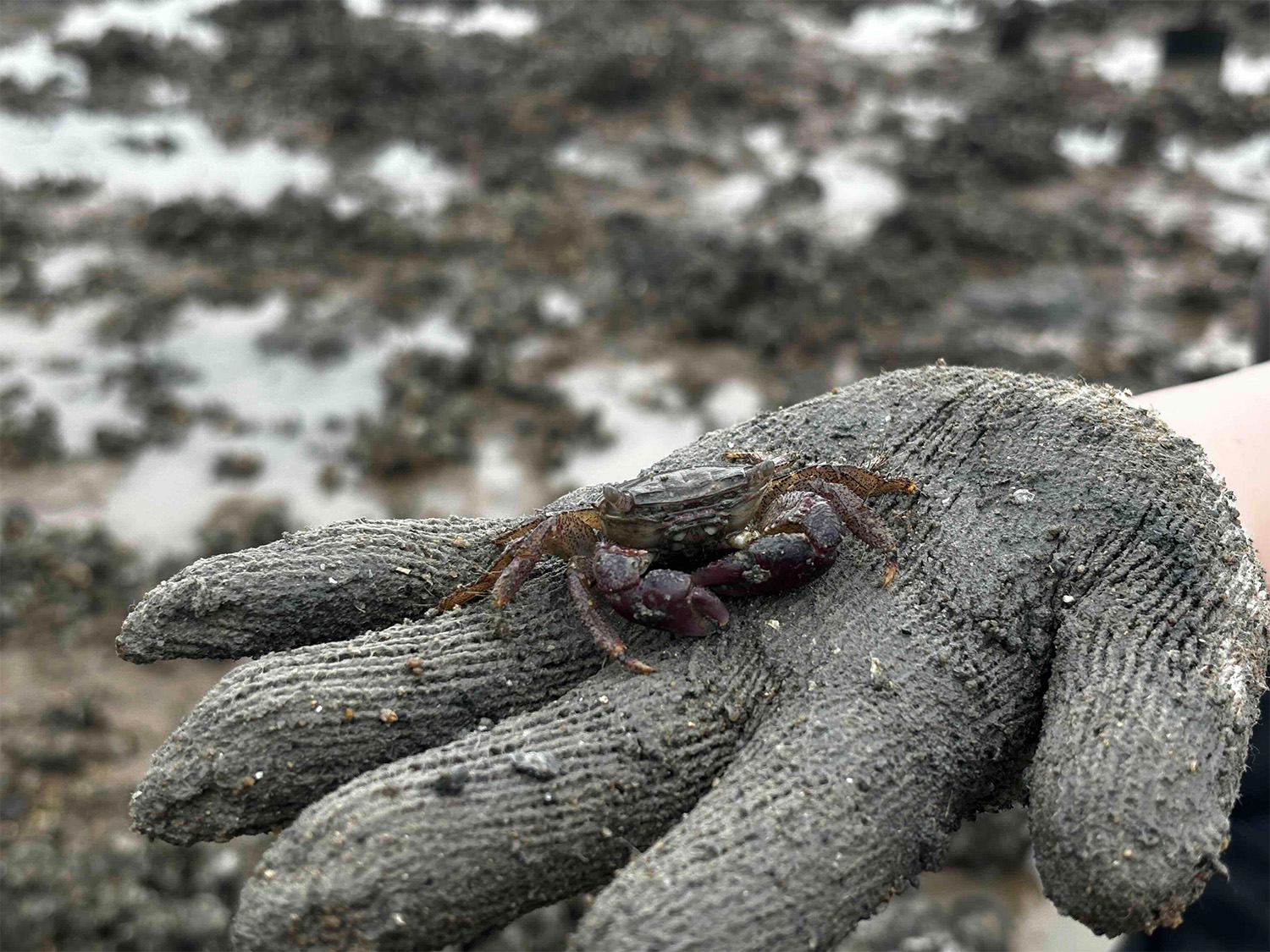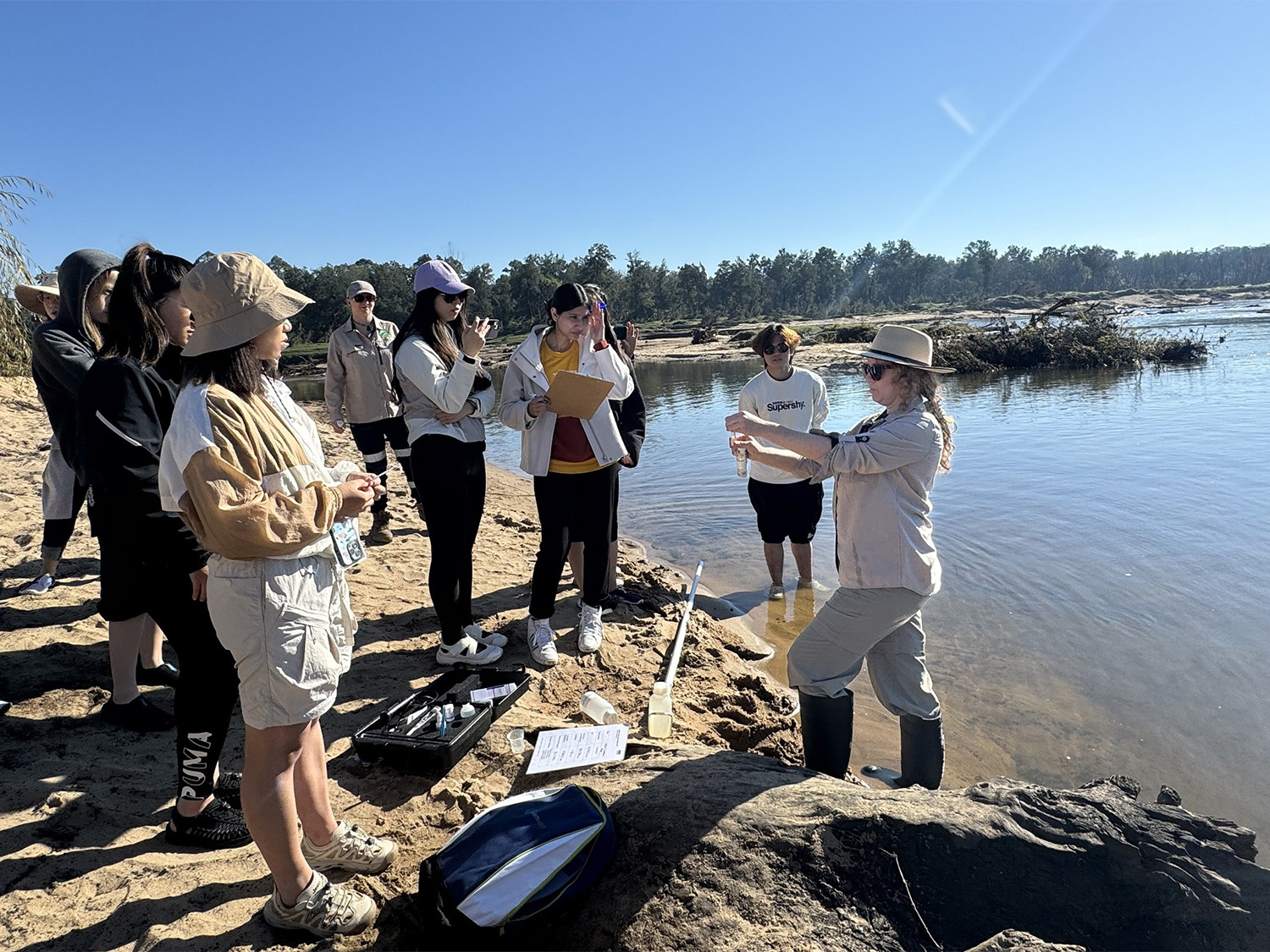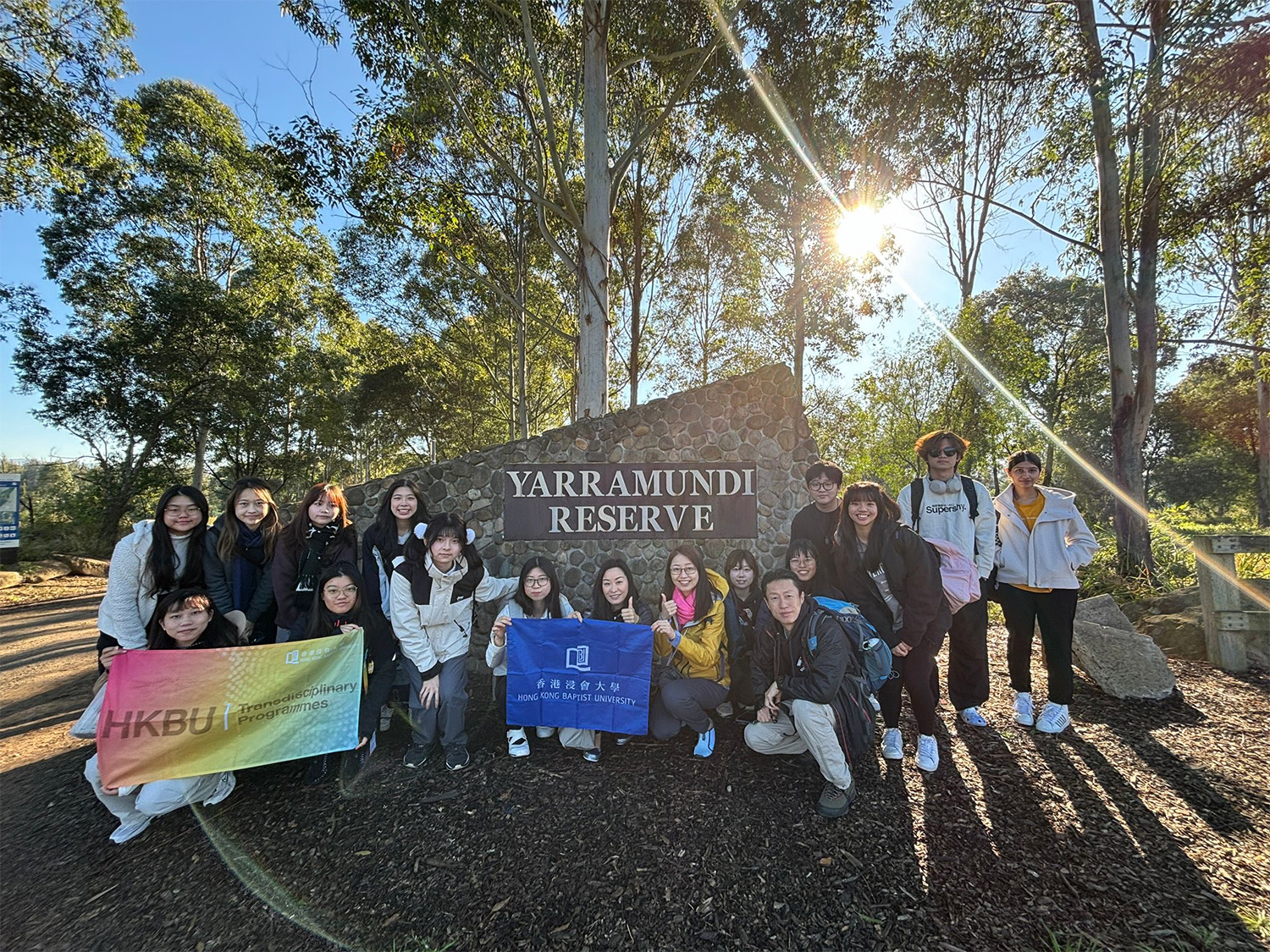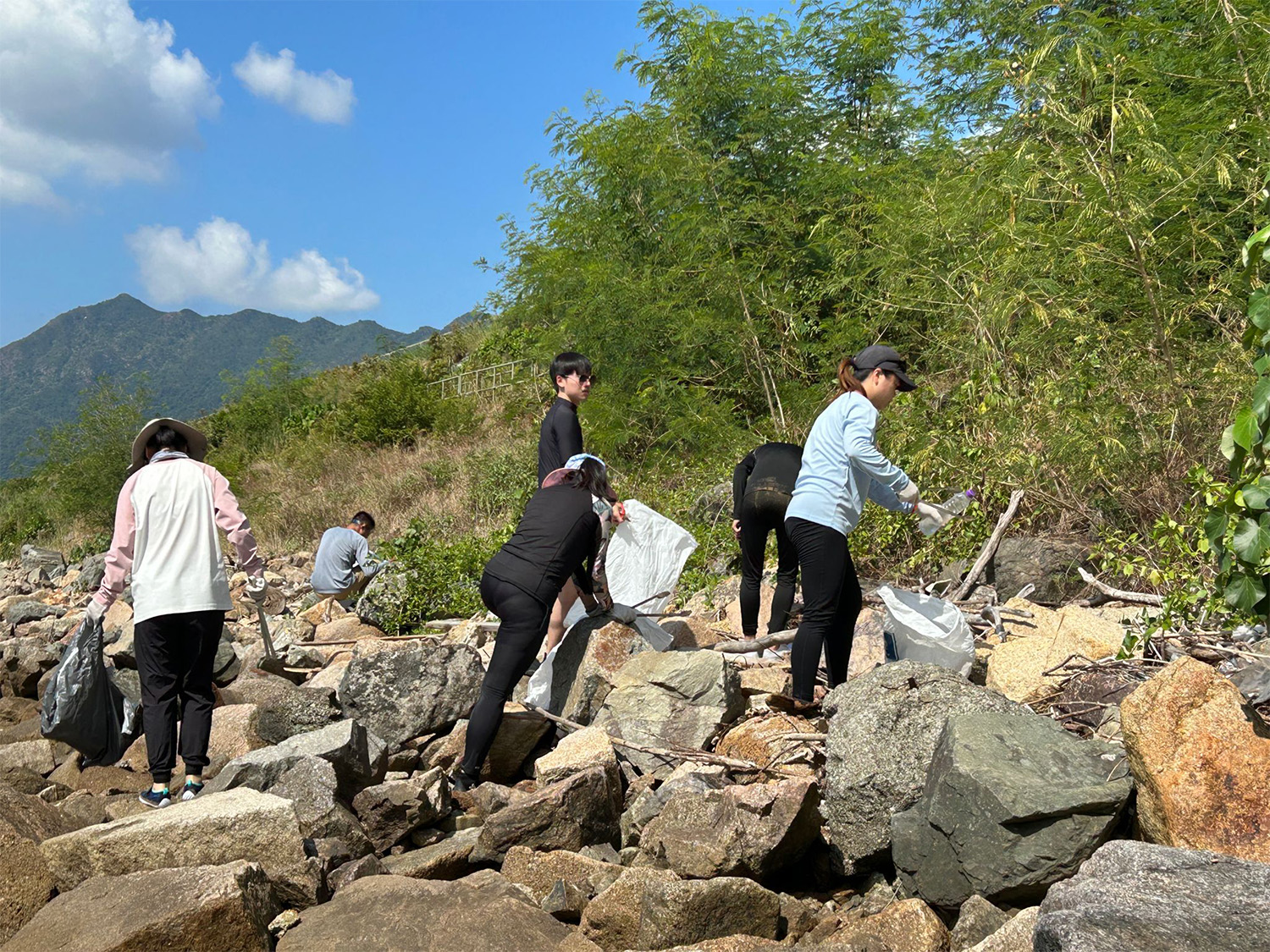SDG 14: Life Below Water
Guided by Dr Levi Mahonri Checketts, students from HKBU’s service-learning course "Environmental Ethics" explored the human-environment relationship through fieldwork in Pak Nai in Yuen Long District with The Nature Conservancy. This hands-on experience provided valuable insights into the impact of human activities on marine ecosystems, igniting a passion for advocating environmental protection.
Driven by their commitment to ocean conservation, the students created educational videos and slides to convey the urgency of preserving delicate coastal habitats. Grounding their ideas in philosophical theories, they effectively illustrated the imperative for sustainable practices to safeguard the environment for future generations.
This service-learning project empowered students to actively engage with complex environmental challenges and advocate for solutions to ensure the health of our oceans and marine life.
Transdisciplinary citizen scientist study tour to Australia
Led by Dr Glos Ho, Principal Lecturer in the Division of Transdisciplinary Undergraduate Programmes and Dr Patrick Yue, Senior Lecturer in the Department of Biology, a group of 14 transdisciplinary students participated in a study tour to Sydney to explore the environmental issue of the Hawkesbury River through a citizen scientist approach. In partnership with the Sustainability Education and Partnerships team of the Western Sydney University and the Hawkesbury Nepean Waterkeeper Alliance in Australia, the tour commenced with a Bioblitz, a project that finds and identifies as many species as possible in a specific area over a short period, to explore the role of transdisciplinary education in citizen science programmes. HKBU students also navigated South Creek, Yarramundi Reserve, and the Hawkesbury River to learn about issues related to microplastics, water stream management, and marine biodiversity. The students have produced three educational videos related to this tour, which will be integrated as teaching materials for the "Global Challenges" course.
Navigating nature's call: Kayaking for environmental conservation
Hong Kong’s marine environment is under threat due to plastic pollution. The Kayak for Marine Service at the Leadership Qualities Centre of the Office of Student Affairs recruited students who are passionate about marine conservation to help protect the city’s oceans. Students received 1–3-star kayak training from experienced instructors, learning essential skills and techniques to control the canoe. After completing their training, the students visited various locations to collect waste, actively contributing to the preservation of Hong Kong's oceans. They also spearheaded campaigns to raise public awareness of marine conservation.
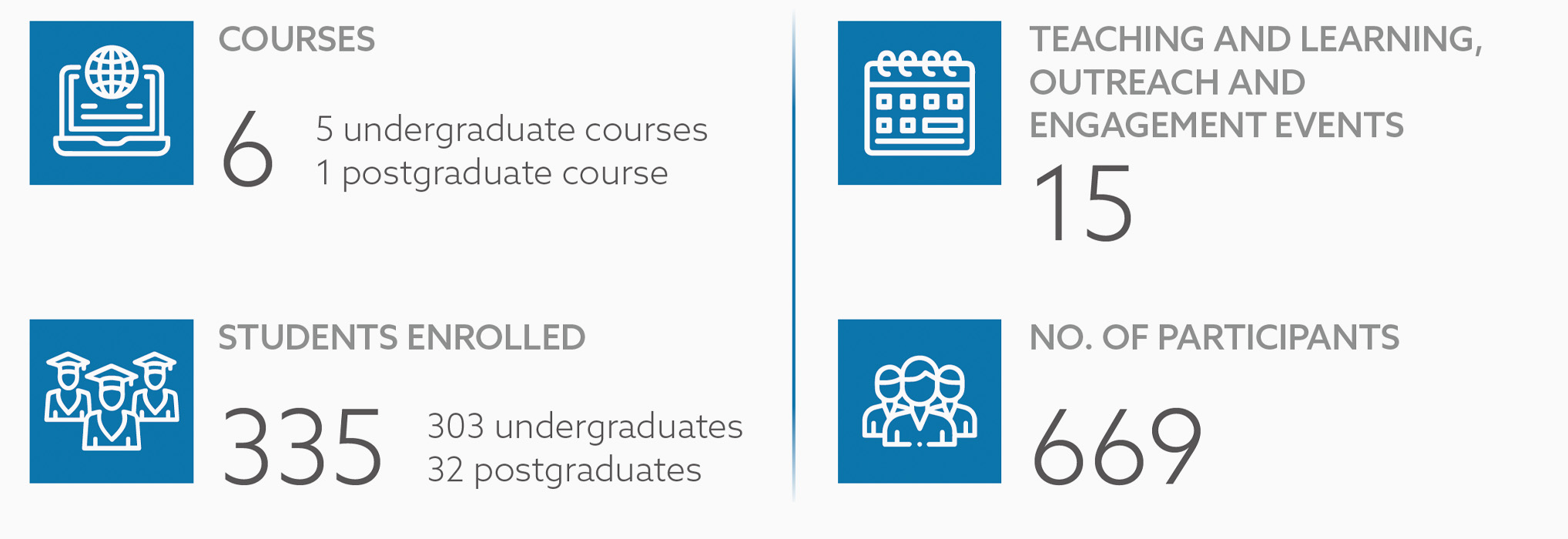

Department of Communication Studies
Authors: Ran WEI*, Shuhua ZHOU, Renyi HE, Kanni HUANG
*Corresponding author
This experiment tested the utility of virtual reality (VR) technologies in building public awareness of an environmental issue – the growing pollution of plastic waste in oceans. The team conducted an experiment to test whether viewing of VR video would produce two types of immersive experiences (e.g., perceived realism and spatial presence) in severely polluted oceans, and to further examine their effects on participants’ pro-environmental attitude with regards to reducing plastic waste. Results showed that VR viewing led to higher perceived realism and spatial presence in comparisons with 2D video and audio-only conditions; perceived realism contributed significantly to pro-environmental attitude, whereas spatial presence did not. The higher the perceived realism, the stronger the pro-environmental attitude. These results have implications for the effective use of VR technologies in environmental communication.
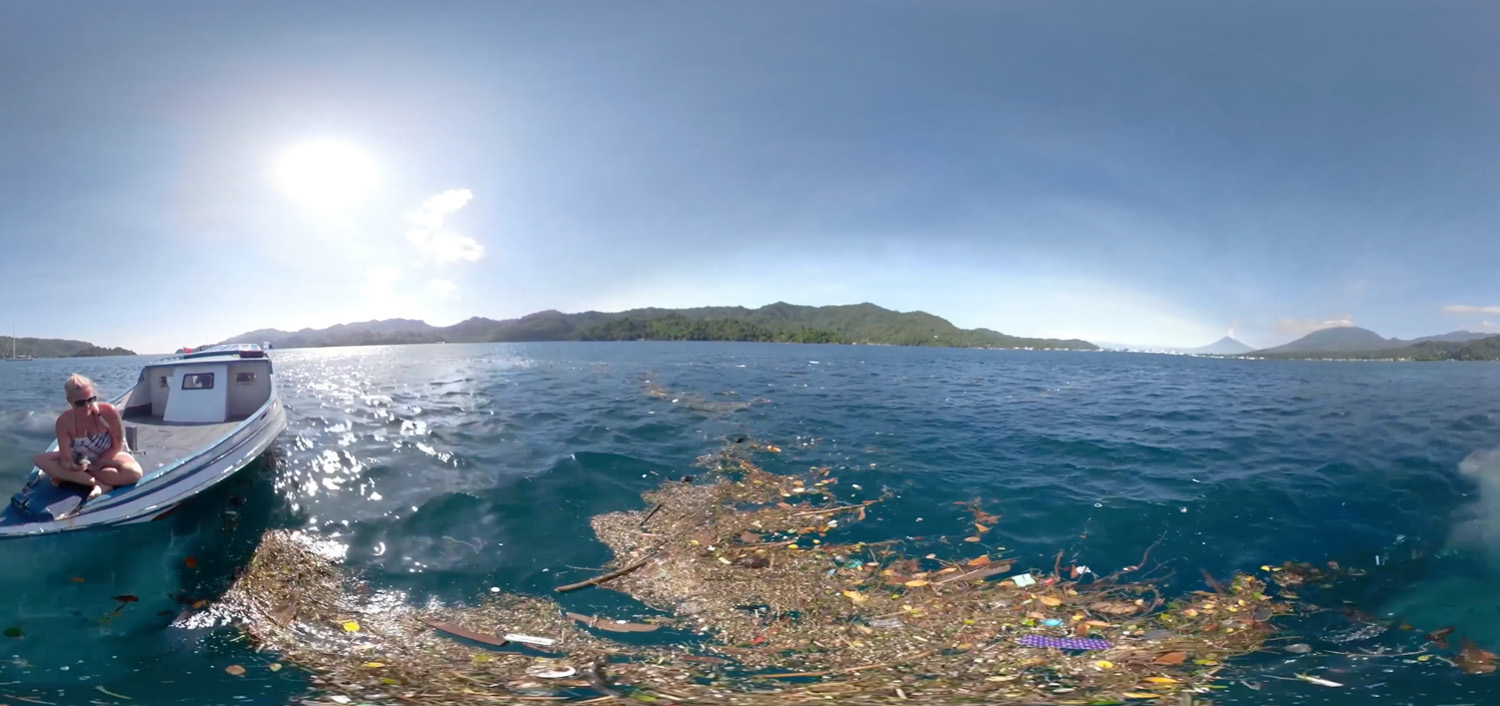

Also relevant to:
Applications of charcoal, activated charcoal, and biochar in aquaculture – A review
School of Continuing Education
Authors: Ka Lai CHOW, Yu Bon MAN*
*Corresponding author
Environmental pollution and poor feed quality pose potential threats to aquatic organisms and human health, representing challenges for the aquaculture industry. In light of the rising demand for aquatic organisms, there is an urgent need to improve aquacultural production and protect the products from contamination. Char, a carbonaceous material derived through pyrolysis of organic carbon-rich biomass, has proven advantages in soil, air, and water remediation. Char's performance and the associated physicochemical characteristics depend strongly on the pyrolysis temperature, residence time, and feedstock type. It generally shows advantages in pollutant removal from the environment and livestock. This review summarises major studies on three applications: aquacultural water treatment, sediment remediation, and char-feed supplement. Most of these studies have demonstrated char's positive effects on pollutant removal from organisms and aquacultural environments; while an adoption of char as fish feed can improve fish growth performance and the condition of their intestinal villi.
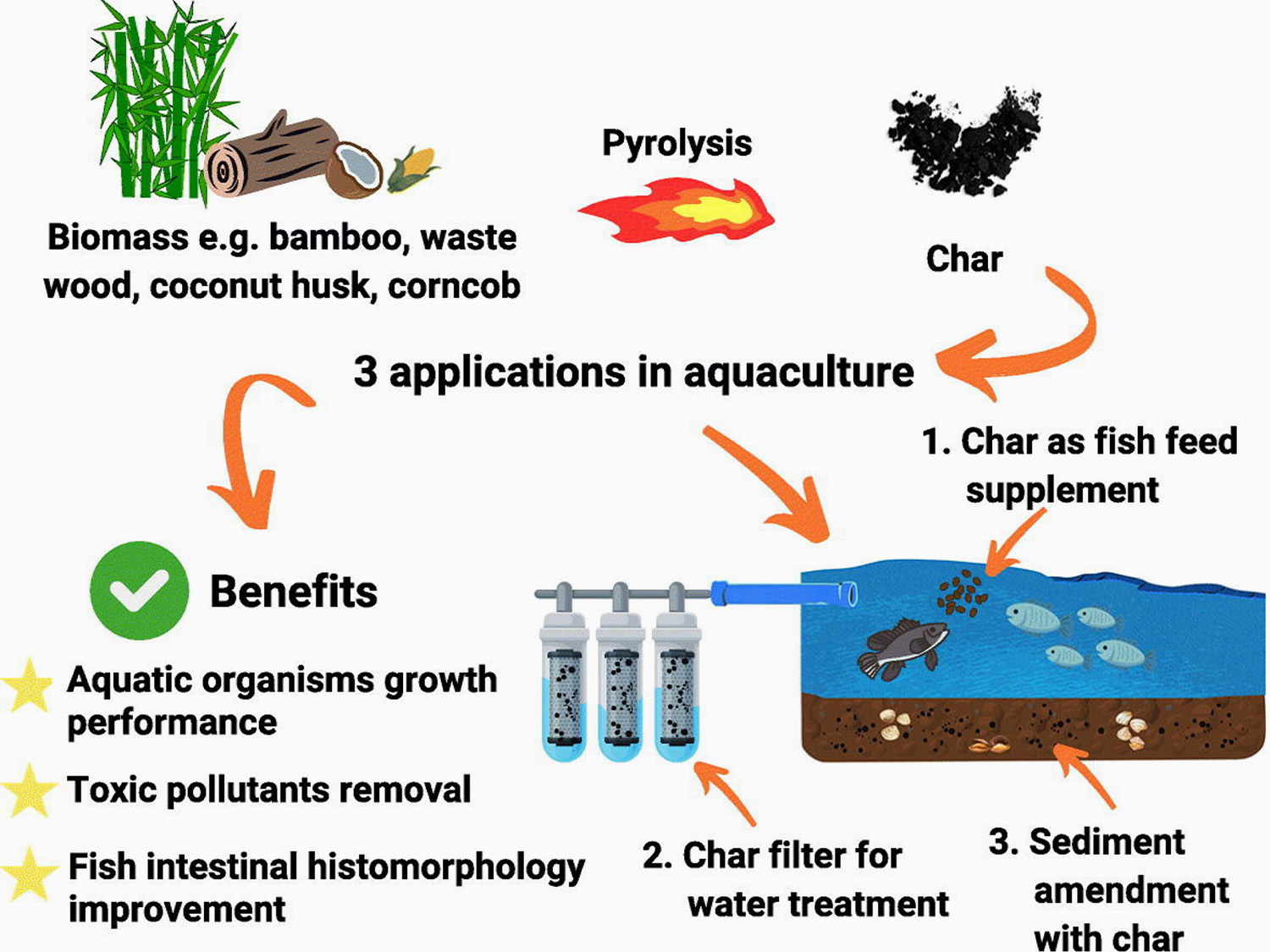

The University has collaborated closely with its catering vendors and on-campus catering operators to ensure that their seafood offerings comply with the latest WWF Hong Kong Seafood Guide. By prioritising seafood options that are sourced responsibly, HKBU has demonstrated its commitment to conserving marine biodiversity and promoting healthy ocean ecosystems. This approach not only reduces the University's impact on the marine environment, but also inspires the campus community to adopt more sustainable and ethical consumption practices.
